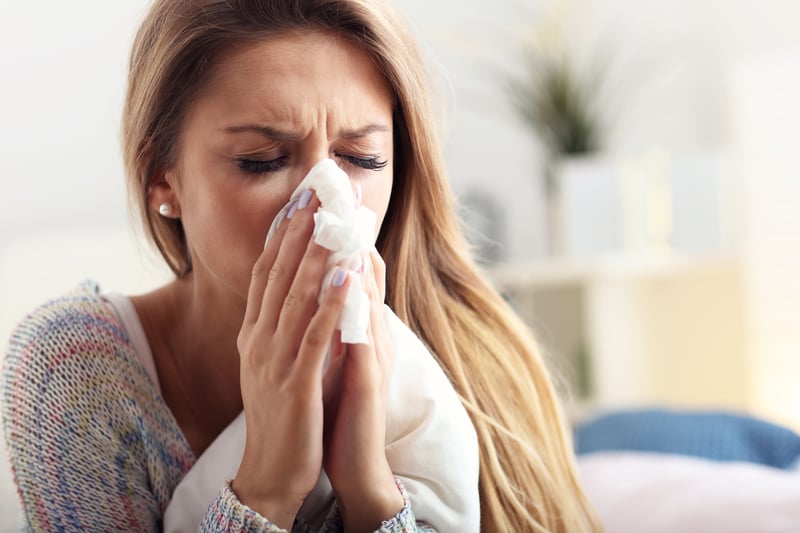Symptoms of the Omicron Covid-19 variant have proved to be more diverse than previous strains, making spotting infection more difficult.
A high temperature, a new continuous cough, and a loss or change to sense of smell or taste are still considered to be the three main signs of coronavirus, according to the NHS, but findings suggest that cold-like symptoms are actually more common with this variant.
The severity of symptoms have also generally been found to be less severe by comparison to the previously dominant Delta strain.
The UK government has continued to stress that vaccination is the strongest form of defence against the virus throughout the pandemic, and while the current vaccines are less effective at preventing infection and transmission of Omicron than previous variants, the jabs do help to protect against severe disease and death.
As such, those who are fully vaccinated against Covid-19 are more likely to experience midler symptoms if infected.
The ZOE Covid study app has identified nine symptoms that are most common among those who have tested positive for the virus and are double jabbed.
Tim Spector, Professor of Genetic Epidemiology at King’s College London, and leader of the ZOE Covid symptoms study, wrote in The Conversation: “When delta appeared, we then noticed a shift in the most frequently reported symptoms. Previously common symptoms such as shortness of breath, fever and loss of smell fell down the rankings.
“Cold-like symptoms – including a runny nose, sore throat and persistent sneezing – became more common, along with a headache and cough, particularly in people who had been vaccinated.
“Omicron appears to be continuing the trend set by delta. It’s causing symptoms that are much more like a regular cold, particularly in people who’ve been vaccinated, and fewer general systemic symptoms, such as nausea, muscle pains, diarrhoea and skin rashes.”
While Covid-19 restrictions are being relaxed across the UK in response to the recent drop in cases, the virus is still circulating so it is important to know the signs to look for.
Listed are the nine most common symptoms among the fully vaccinated, based on data from the ZOE Covid study app.
Read more:

1. Runny nose
While suffering from a runny nose is common in winter when colds and flu are more prevalent, this is also one of the most highly reported symptoms of the Omicron variant on the ZOE Covid symptom app. So if you feel sniffly, it is worth taking a Covid-19 test.

2. Sore throat
A sore or ‘scratchy’ throat is one of the key warning signs of Omicron, and will often occur in the early stages of infection. Drinking plenty of fluids and taking paracetamol can help to soothe the pain.

3. Sneezing
Another symptom that can easily be confused for a sign of a cold, sneezing could actually be due to infection from Omicron. The ZOE Covid study found that people who have been vaccinated and then tested positive for coronavirus are more likely to report this symptom than those who have not had a jab.

4. Headache
Often one of the earliest signs of Omicron infection, researchers have found that people with coronavirus tend to have moderate to severely painful headaches, or feel pulsing or stabbing pains.


